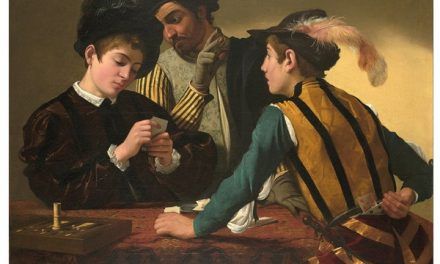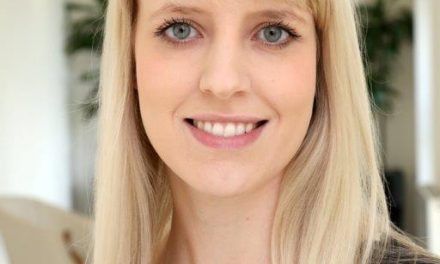I have had the pleasure of conducting face-to-face advocacy training in numerous jurisdictions, from Hong Kong to Washington DC, via Malaysia, Singapore, Belize, Barbados, Trinidad and Tobago; and, most recently, in The Hague for the International Criminal Court and The Hague University. All these courses had two things in common: first the Hampel Method of advocacy training; and, secondly, face-to-face interaction with the trainees. The first lockdown in 2020 drove our advocacy training at Middle Temple hastily online and Cumberland Lodge became a virtual weekend. The regular Middle Temple pupils’ advocacy courses also became virtual experiences.
So, 18 months later, and after the first resumed Cumberland Lodge weekends, the question that I want to discuss is this: has Covid-19 changed forever the way that we deliver advocacy training? The short answer to that question is a resounding ‘no’. We will never, ever, be able to deliver advocacy training to the high standards that Middle Templars expect online. However, we have been able to provide some experiences of quality training online, though the methods of training have adapted, albeit it subtly, to the demands of ‘Star Leaf’, ‘Microsoft Teams’ and ‘Zoom’.
There is no doubt that our trainers at the Inn adapted quickly to delivering online advocacy training online. The staff at Middle Temple Advocacy were quick to realise that we would need to adapt to a completely new method of training and very quickly. Of course, the actual method of training did not change but the vehicle for delivery did. But there were problems which had to be dealt with; not least the vagaries of internet connections and the ubiquitous requests to ‘unmute’. As to the actual experience of training online, I have had consistent feedback from our students that the ‘online experience’ has been much harsher than the face-to face experience of having a trainer standing nearby (without a mask) when giving the feedback on an advocacy exercise. The Hampel method has at its core the single topic ‘headline’, followed by the usual ‘playback’, ‘reason’, ‘remedy’, ‘demonstration’ and ‘replay’. When a trainer is present in the room and able to ‘soften’ the review with a smile and some empathy, the trainees can see the human side of the reviewer. However, online, the trainer can often come over as just critical and lacking empathy. We have all had to adapt our training to soften the impact on trainees. Perhaps that has been a good thing. Slavishly following the Hampel Method is not necessarily something that we want to impose upon students during the austere months of isolation that they endured at a particularly testing and demanding time in their education. So, the injection of a little online ‘discursive’ feedback, peppered with empathy has been good for the morale of both the trainers and trainees.
One area of advocacy training has adapted itself extraordinarily well to online exercises. In the real courts during the pandemic, narrative advocacy (aka ‘applications advocacy’) has migrated to online advocacy. Plea and directions hearings in criminal, civil and family cases have migrated very smoothly to online advocacy and the consensus amongst both the Judiciary and practitioners is that such hearings will never return to face-to-face hearings in court. What sense is there in a member of the Bar travelling miles to get to court for a hearing that may only take ten minutes before a judge? The Bar and the Judiciary have adapted extraordinarily well to online preliminary and interlocutory hearings. Now that the real courts are using online hearings more frequently, so too must the Inns provide training for our students in the techniques that are necessary to conduct an effective online hearing.
Nothing will ever be able to compete with an evening or weekend of training and social contact that trainers and trainees experience at Cumberland Lodge and other face-to-face Qualifying Sessions. The residential weekends provide so much more than just a weekend of Hampel boot camp. The opportunity for the students to meet and socialise with established practitioners and members of the Judiciary provides an invaluable experience for them. Equally, it allows the trainers to develop an empathy with the students in a superb environment. I was lucky to be able to take part in both the recent Cumberland Lodge weekends and it was a joy to be able to see the way that our students participated and enjoyed their time there. The experience was so different to the online Cumberland Lodge weekends during lockdown.
Nevertheless, the last 18 months have shown us all that by being innovative and adaptable, we can (and have) continued to provide our students with worthwhile, effective advocacy training. As the new Course Director of the Pupils’ Advocacy Training Programme, I am looking forward to working with Master Stephen Lloyd, Rosalie, all of our trainers, and of course, all our students at the Inn to develop advocacy training which will not just be ‘fit for purpose’ but will cater for all the demands that new practices in our ‘post Covid-19’ legal environment will bring.

Master Paul Garlick has recently been appointed as the Course Director of the Pupillage Advocacy Course. He recently returned to the UK and to life at the Inn, having spent the last five years teaching at The Hague University and training at the International Criminal Court. He has carried out advocacy training in numerous foreign jurisdictions, on behalf of the Inns of Court College of Advocacy, the EU Commission, the Council of Europe and The Organization of Security and Co-operation in Europe (OSCE).





